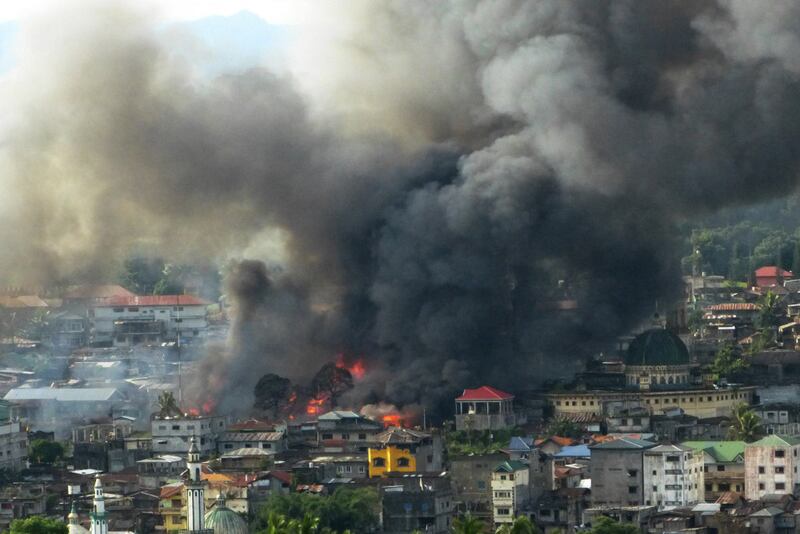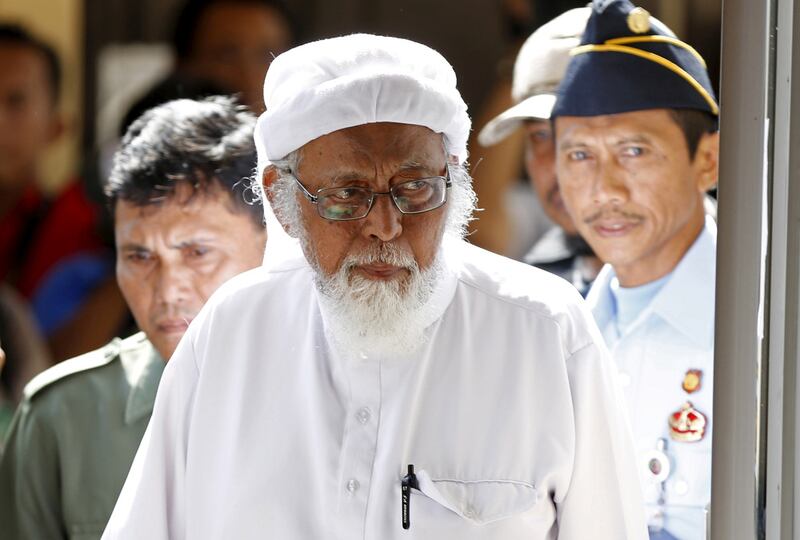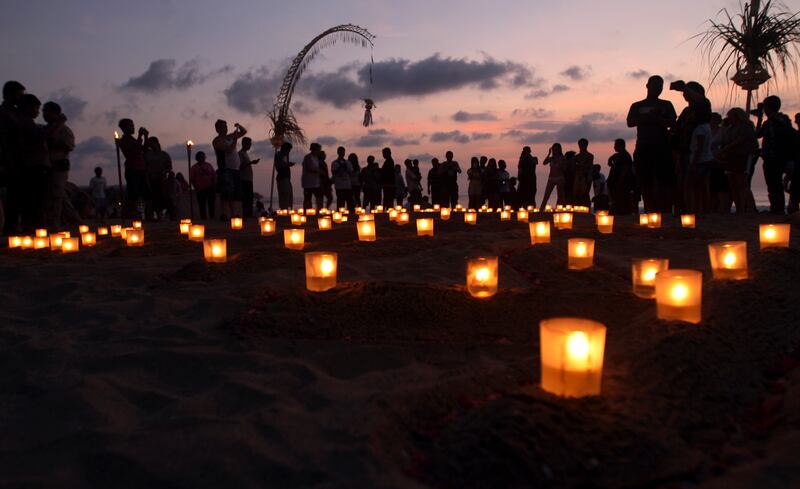The Taliban’s swift takeover in Afghanistan is drawing cheers of support from some Islamic and political groups in Southeast Asian countries and Bangladesh, as well as warnings from experts and security officials that it may embolden local militants.
The Afghan government collapsed at the weekend after President Ashraf Ghani fled abroad and Taliban insurgents seized the capital. The Islamic fighters swept into Kabul without any armed resistance after the United States withdrew military forces that were part of an international coalition backing the government.
According to Rommel Banlaoi, a Filipino security expert, in the days since Kabul fell militant groups worldwide have been celebrating it as “the victory of jihadism.”
“The possibility of a spillover of violence in the southern Philippines is high,” he warned, with serious implications globally “because Afghanistan continues to be a safe haven for active international terrorist groups.”
Banlaoi said Taliban supremo Haibatullah Akhundzada was “a good friend” of al-Qaeda chief Ayman al-Zawahiri and the relationship between the two groups “will really have serious implication for global counter-terrorism.”
In the southern Philippines, where violent extremist groups have operated for years, Muslimin Sema, chairman of the Moro National Liberation Front (MNLF), said it was “sheer determination, persistence, and resoluteness of the Taliban that defeated hypocrisy and opportunism in Afghanistan.”
MNLF is an Islamic separatist force that signed a peace deal with Manila in 1996.
Meanwhile, a spokesman for The Moro Islamic Liberation Front (MILF) – an offshoot of MNLF – expressed hope that all parties in Afghanistan could strike a compromise, to prevent that country from descending into more conflict after decades of war.
“We opted for negotiation for the sake of the people,” MILF spokesman Von Al Haq told BenarNews, referring to talks that led to the group’s peace settlement in 2014.
Drieza Lininding, a civic leader in the southern Philippines, likewise appealed to the Taliban and other stakeholders to come up with a peace plan “inclusive of all.”
“We congratulate the Taliban and the people of Afghanistan for the successful coup and liberation against the incompetent and corrupt politicians of Afghanistan,” Lininding said.
Lininding is from the southern city of Marawi, which was destroyed during a battle between government forces and pro-Islamic State fighters who seized it for five months in 2017.
One of the most violent Islamic groups in the southern Philippines, Abu Sayyaf was founded by a Filipino who fought in Afghanistan during the Soviet occupation in the 1980s.
A more recent leader of Abu Sayyaf, Isnilon Hapilon, became the emir of the so-called Islamic State group in Southeast Asia, and headed the siege of Marawi.
After the 9/11 attacks in the United States 20 years ago, the southern Philippines became an Asian theatre in the global war on terror largely because of Abu Sayyaf’s presence.
The international terrorist group al-Qaeda had launched the 9/11 attacks from its safe haven in Afghanistan, when the Taliban first ruled the country.

Victory will ‘ignite spirit of jihad’
In Indonesia, local veterans of the war against the Russians in Afghanistan were among extremists who joined Jemaah Islamiyah, the Southeast Asian affiliate of al-Qaeda. Indonesian authorities blamed JI for the October 2002 Bali bombings – the deadliest terrorist attack in Indonesian history.
The Taliban victory in Kabul “will ignite the spirit of jihad in Indonesia,” said Sofyan Tsauri, a former member of Jemaah Islamiyah.
Sofyan defended the Taliban, comparing them to the Islamic State group.
“The Taliban don’t require people to pledge allegiance and they don’t kill innocent people just like that,” Sofyan, a former policeman who spent five years in jail for terrorism-related offenses, told BenarNews.
Another former terrorism convict, Joko Tri Harmanto, said Indonesian jihadists “will have more motivation because the Taliban’s struggle is successful.”
“But I hope our brothers (in Indonesia) realize that the Taliban’s success has been because they hold on to their principles by not hurting women and children and respecting human rights,” said Joko, who was jailed for more than four years for his involvement in the 2002 Bali bombings that killed 202 people.
Meanwhile, Abu Bakar Bashir, an 83-year-old radical cleric whose sermons were believed to have inspired the Bali bombers, was rejoicing over the Taliban victory, according to his son, Abdul Rohim Bashir. Bashir, JI’s co-founder, was freed in January after serving nearly 10 years of a 15-year-sentence.
“Ustadz (teacher) Abu is happy that the Taliban have succeeded in liberating their country after 20 years,” Abdul Rohim said.
“What the Taliban have done for so long is exemplary. Their consistency in fighting on the path of Allah and their struggle finally paid off. They also continue to adhere to Islamic law. They don’t even kill corrupt government officials, who are allowed to stay,” the son said.
Since 2002, Indonesia has witnessed a rise in radicalization, along with occasional terrorist attacks. Dozens of Indonesians travelled to the Middle East to join the Islamic State after it took over parts of Syria and Iraq in 2014.
Wawan Hari Purwanto, a spokesman for the National Intelligence Agency (BIN), said the “movement of terrorist groups in Indonesia is more or less influenced by developments at the global and regional levels.”
Since the Taliban takeover, the agency “has taken steps to strengthen early detection and early prevention, especially regarding terrorist groups that have an ideological resemblance to the Taliban,” he said.
“The Indonesian government continues to monitor the security situation in Afghanistan,” he told BenarNews on Thursday.
According to Indonesian security expert Muhammad Adhe Bhakti, the authorities should watch out for Indonesian militants leaving for Afghanistan.
“A power struggle between the Taliban and other groups, including Islamic State, could attract Indonesian jihadists to travel to Afghanistan,” warned Adhe, the executive director of the Center for Radicalism and Deradicalization Studies (PAKAR).

Different times, different situation
In Malaysia, the chief of the police’s counter-terrorism branch said it was too early to make an assessment about a terror threat stemming from the events in Afghanistan, “because the Taliban is still offering peace to all parties.”
“The time is different, the situation is different and the outcome surely different,” Normah Ishak told BenarNews when asked if the Taliban takeover would energize local extremist groups or cells in Malaysia.
Former counter-terrorism chief Ayob Khan Mydin Pitchay, for his part, warned that the establishment of a new Taliban government may energize dormant terror cells in Southeast Asian countries, including Malaysia.
“The Taliban may have changed its approach in gaining power and softened its stand on certain issues,” he told BenarNews.
“But those who have been analyzing terror organizations and extremist outfits would know their agenda and propaganda remain the same. They want to establish an Islamic State.”
He said some Malaysians may even emigrate to fight alongside the Taliban, adding “they are willing to make sacrifices in the name of religion.”
Meanwhile, a government security source said that former Malaysian members of Muslim militant outfits, such as Jemaah Islamiyah and Islamic State, had expressed their happiness “with the new development” in Afghanistan.
“They say finally an Islamic State has been established. They finally won a fight against colonizers. They are quite high-spirited,” the source told BenarNews on condition of anonymity, because he was not authorized to speak to reporters on the matter.
“There is a possibility of Afghanistan becoming a training ground. The possibility of foreign fighters migrating there is also there.”

In Bangladesh, another Muslim-majority country, police said this week they were monitoring online activities after the Taliban victory.
“We have seen that some youth in Bangladesh have posted euphoric comments after the Taliban took over Afghanistan,” Md Faruk Hossain, the spokesman for the Dhaka Metropolitan Police, told BenarNews on Monday.
“The Taliban usurpation of power in Afghanistan is likely to inspire the local militants and their sympathizers in Bangladesh,” he warned, adding that police, counter-terrorism units, and other agencies were on “high alert.”
But the militants and extremists will be dealt “with an iron hand,” Hossain said.
A day before the fall of Kabul, Dhaka Police chief Shafiqul Islam said that, in recent weeks, “some people from Bangladesh had responded to the call of the Taliban to join the war in Afghanistan,” and had left their families to go and fight for the Taliban.
“We suspect that some of them were caught in India, while others have been trying to reach Afghanistan on foot,” Islam told reporters on Aug. 14.
Mohammed Yahya, a former vice president of the radical and influential faith-based group Hefazat-e-Islam, issued an assurance that “what has happened in Afghanistan will not take place in Bangladesh.”
“We at the madrassa do not teach violence. We teach our students about true values of Islam,” he told BenarNews. “The government… should not fear us.”
Jason Gutierrez, Dennis Jay Santos, Jeoffrey Maitem, Mark Navales, and Froilan Gallardo in the Philippines; Ahmad Syamsuddin and Kusumasari Ayuningtyas in Indonesia; Muzliza Mustafa and Nisha David in Malaysia; and Kamran Reza Chowdhury in Bangladesh contributed to this report.
